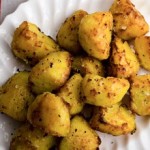The problem isn’t as bad as it seems, but has been amplified by social media and easy communications. This week we have seen an MP abused for rationally organising a shorter state of emergency than the state government wants.
The people who are angry in this pandemic have all sorts of reasons, across of spectrum of logic and sense. At one end, they believe that the hit to the economy, and particularly to their individual livelihoods is overly harsh. That is a fair opinion. But we also have people who know nothing about the law saying things are unconstitutional, and people who nothing about science banging on about 5G.
The reason China (allegedly) dealt with COVID-19 so well, once they got going, is they have a culture that thinks in terms of state first, individuals second.
In the west, it is typically the other way around. And we will always have dissenters against democratic decisions if it doesn’t suit the individual.
But the worst thing, I feel, is that people these days have inflated expectations of what they deserve in life. Just one generation ago, aspirations were around a good education gets a good job. This generation, people feel they have a right to become millionaires from making YouTube videos of themselves pouting.
I hope the “We are all in this together” aspects of the pandemic will help shift the attitudes of some people.
As an aside, I think critical thinking is painful for many. For me to a small degree, and some people majorly, even filling a form is scary and your brain goes blank. Being bombarded with a situation that for some people is literally too difficult to comprehend, can cause anguish and anger.
Read More

